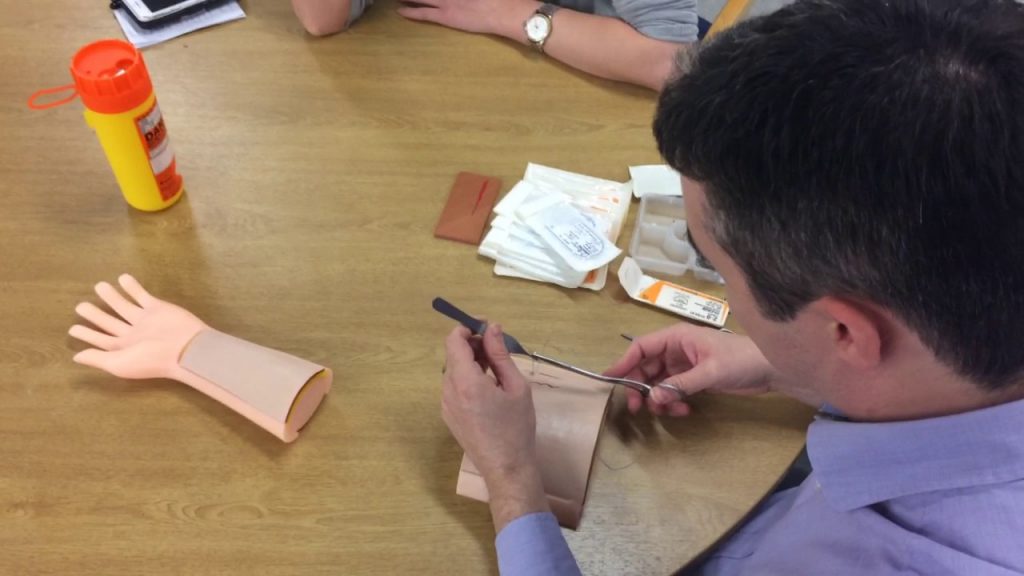This edition of 3D printing news Sliced features stories from Sharebot, Luxexcel, Deloitte, the World Economic Forum, Carbon, Paragon Rapid Technologies, US Department of Energy, Gecko Biomedical, San Draw Medical, Ghent University, University of Nottingham, 3D Distributed, SYS Systems, Sharebot, Innovate UK, BigRep, Keter and MIT.
Which countries may face greater social problems with industry 4.0? How do you rebuild a war-torn city with spider robots? How do you simulate a live tumor using 3D printing?
3D printing on the global stage
Luxexcel, a Netherlands-based producer of 3D-printed prescription lenses has opened a US headquarters in Alpharetta, Georgia.
Luxexcel chief commercial officer Guido Groet said, “the U.S. market is a market which is open for innovation and opportunity and this goes hand in hand with our mission to revolutionize the eyewear industry and offer smart eyewear to the world.”
A research report by Deloitte Global has suggested that India, South Africa, and China may face “social upheavals and increased income inequality as a result of industry 4.0.” In the findings released at the World Economic Forum’s annual summit, the countries have suffered social upheaval as a result of political changes, which will affect their adoption of advanced manufacturing.
Awards for bioprinting and 3D printing innovation
The US Department of Energy (DOE) is awarding 1.87 million worth of prizes under the High-Performance Computing for Manufacturing (HPC4Mfg) program to drive US innovation. From the seven winners, Caterpillar Inc, Eaton Corporation, General Motors LLC, Arconic Inc and Vader Systems, LLC received their awards for a 3D printing related project.
And Gecko Biomedical, a Paris-based medical device company specializing in 3D printed synthetic polymers for tissue repair has been awarded €6 million in funding through the Investments for the Future programme (PIA). The funding will go towards developing Gecko’s polymers platform and its new project that uses 3D-printed micro-conducts to reconstruct peripheral nerves without sutures.
Simulated sutures and tumors
San Draw Medical has unveiled a new suture training simulator. It features a 3D printed silicone rubber “skin pad,” with multiple wounds in various degrees of severity that medical students can practice stitches on.
Researchers from Ghent University in Belgium led by Olivier De Wever have recreated a peritoneal metastasis tumor model with 3D printing. A similar size, porosity, and mechanical and biochemical properties of the real cancer were achieved by 3D printing a scaffold and then adding cancer-associated fibroblasts with tumor cell lines.

New 3D printer from 3D Distributed, new partnership for Carbon, new Sharebot store in Italy
3D Distributed, a Houston-based technology company is launching the Workhorse 3D printer, which uses lead screw driven motion instead of belt driven motion to move along the x and y-axes. As a result, print quality is not affected when a heavy object is manufactured.
3D printing service bureau Paragon Rapid Technologies has been announced as the first UK production partner for Carbon and will offer Carbon’s proprietary Digital Light Synthesis (DLS) 3D printing in its services.
3D printer reseller SYS Systems is holding a free 3D printing ‘pop-up’ event at the Manufacturing Technologies Association (MTA). SYS engineers will be on hand to show visitors the Stratasys Objet30 Pro at the event from 6-8. Register now.
Italian 3D printer manufacturer Sharebot has opened the Sharebot 3D Store in Monza, its third store in Italy. The store is dedicated to 3D design and professional rapid prototyping.
The UK rewards advanced manufacturing
The University of Nottingham is set to build a £30 million Advanced Manufacturing Building, which will focus on 3D printing and robotics research.
Innovate UK, the UK Government technology strategy agency has up to £19 million to invest in organizations involving emerging technologies, digital technology, autonomous systems, and space systems. The categories include additive manufacturing, AR, and VR. Applications are open for the competition that runs until 28 March 2018.

From building furniture to rebuilding cities
Israel-based plastic product manufacturer Keter is using a BigRep ONE 3D printer to and prototype objects before injection molding the final versions.
A team from MIT’s Self-Assembly Lab has won the digital category at the Beazley Designs of the Year 2017 competition for its Rapid Liquid Printing technology. The overall winner of the competition was David Adjaye’s Smithsonian National African American history museum.
Paris-based architect Vincent Callebaut has proposed a method to rebuild the Iraqi city of Mosul using spider-like 3D printing robots. Drones would harvest rubble from the city and deliver it to the robots. The robots would then 3D print material recycled from the rubble into blocks of houses spanning the city’s five bridges across the river Tigris.
Let us know what you think are the most important applications of 3D printing. Make your nominations for the 3D Printing Industry Awards 2018 now.
For regular updates on the world of 3D printing, subscribe to our free 3D Printing Industry newsletter, follow us on Twitter, and like us on Facebook.
Featured image shows MIT Rapid Liquid Printing Technology in action.


